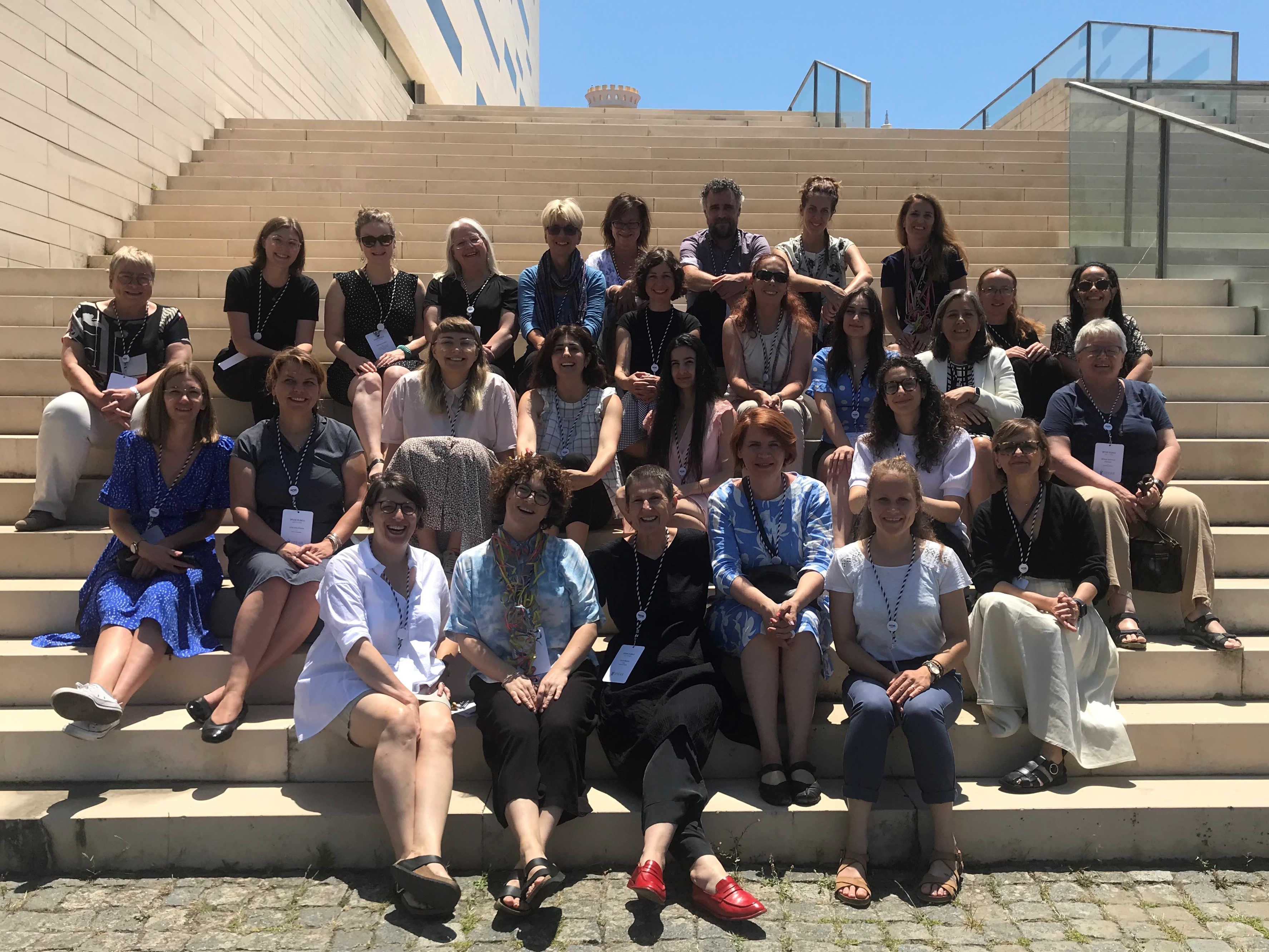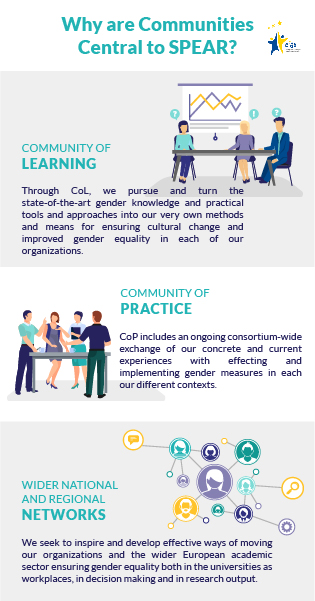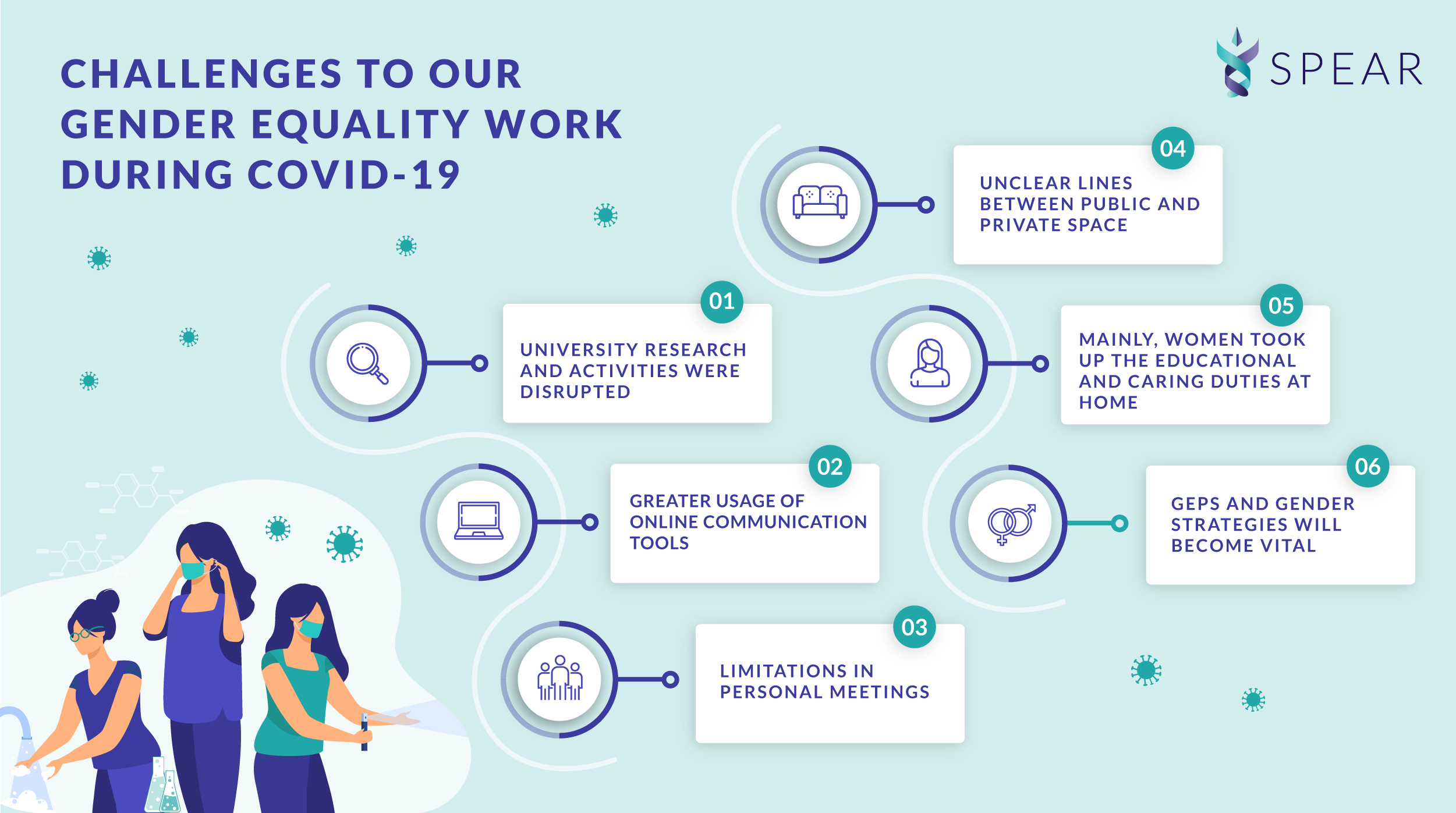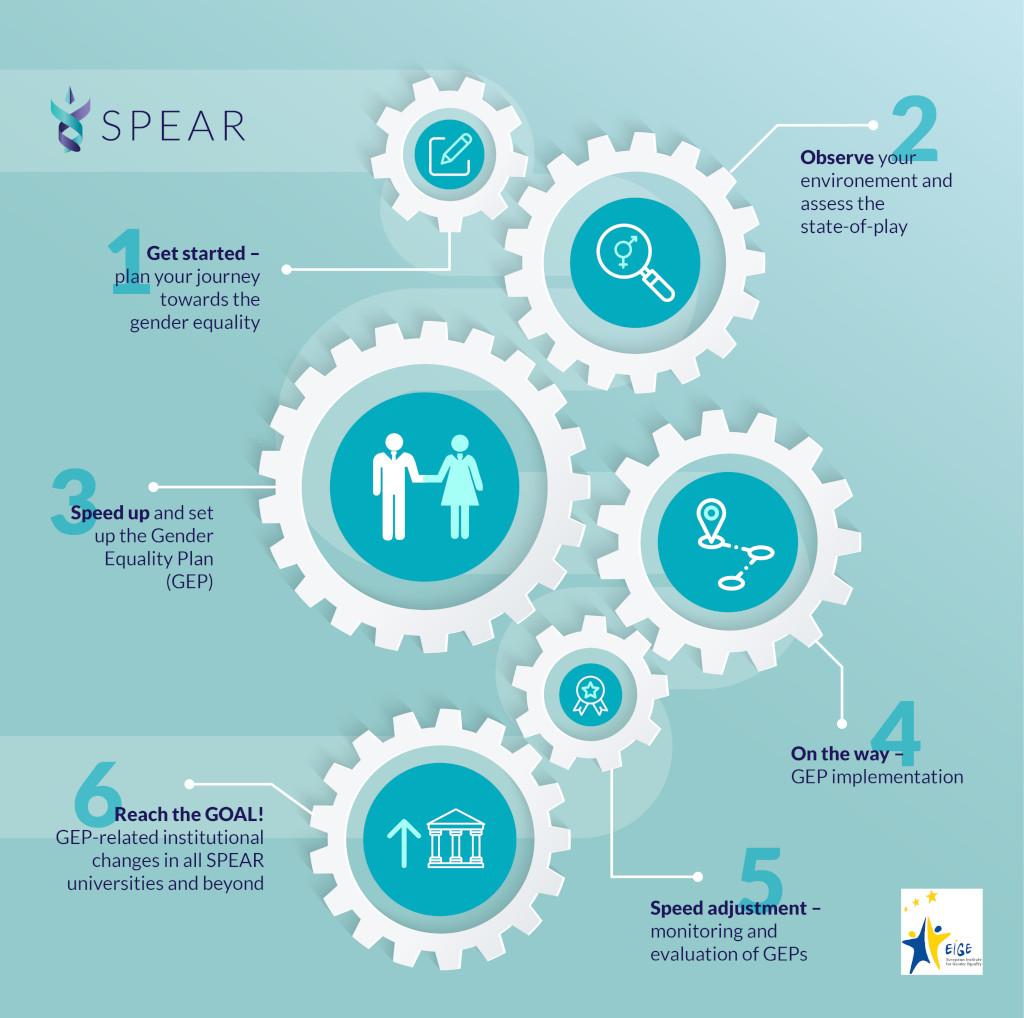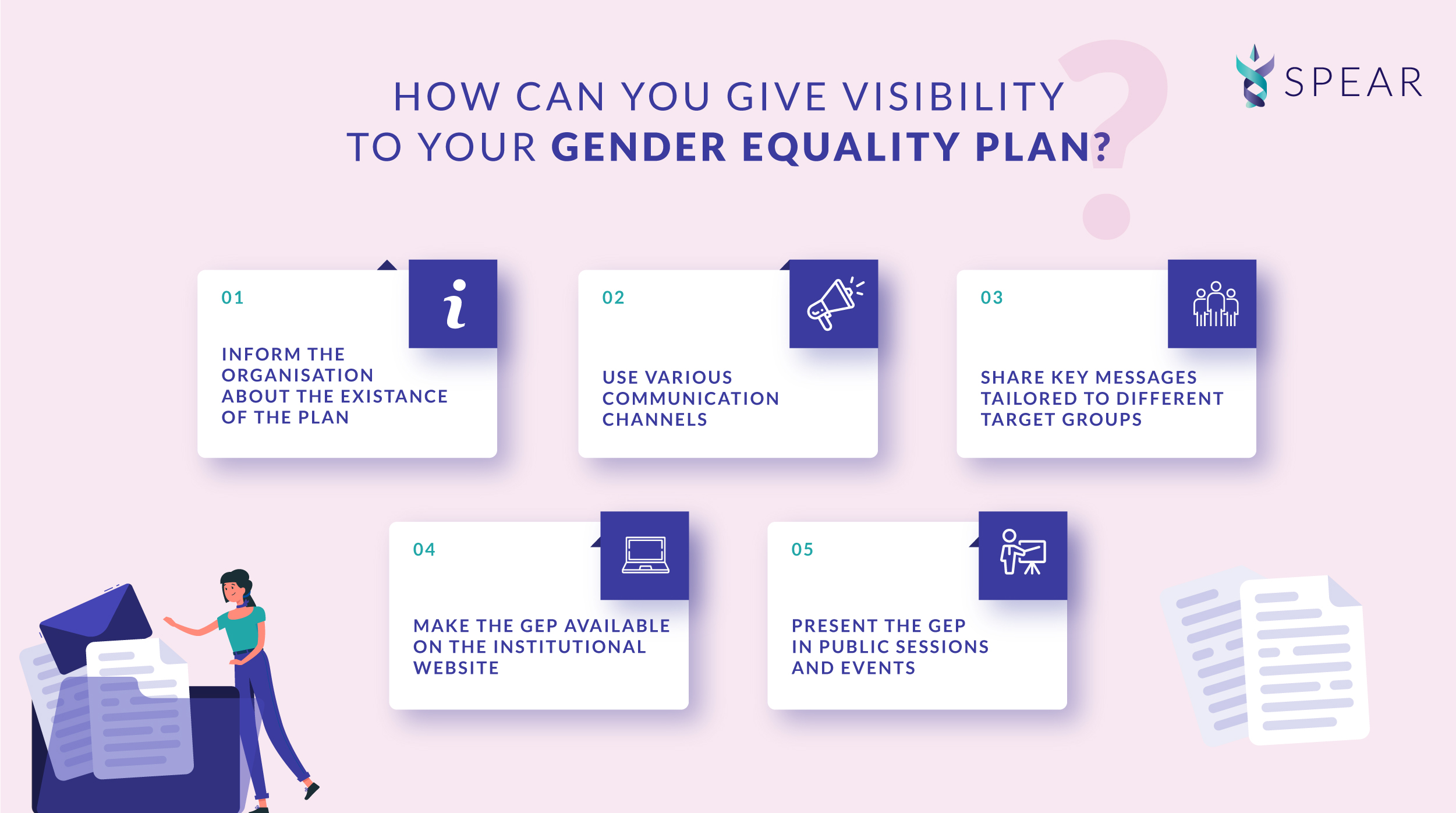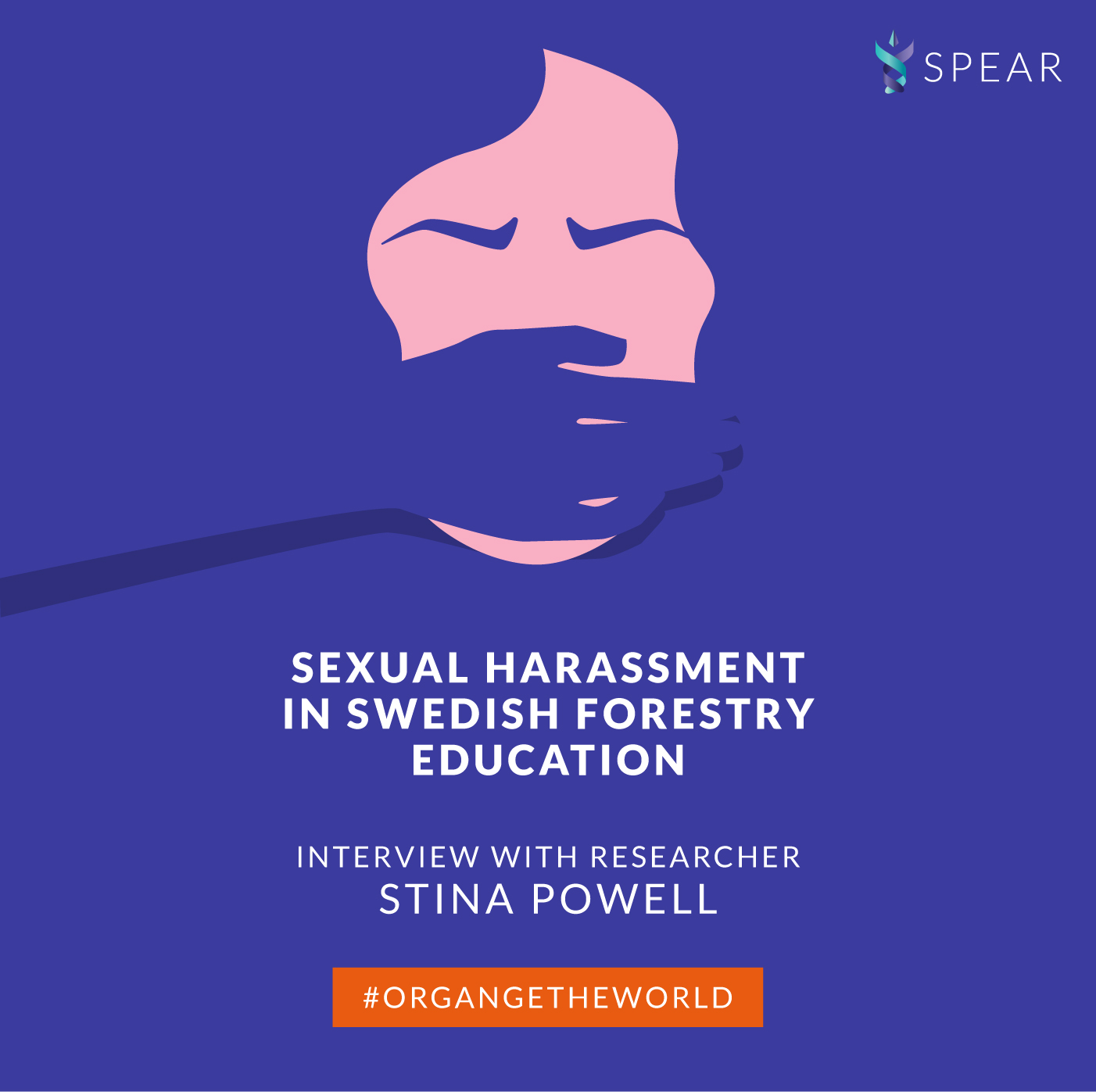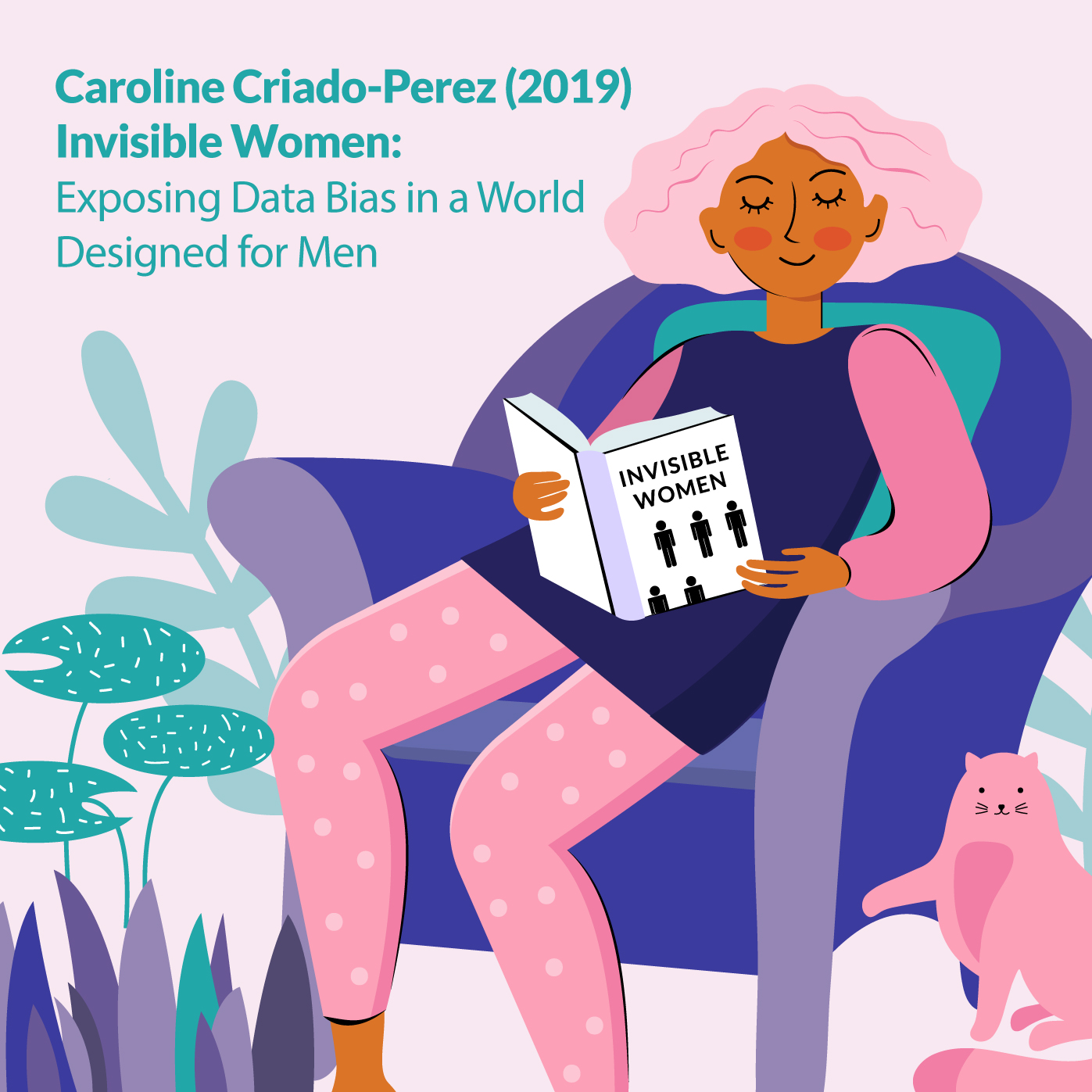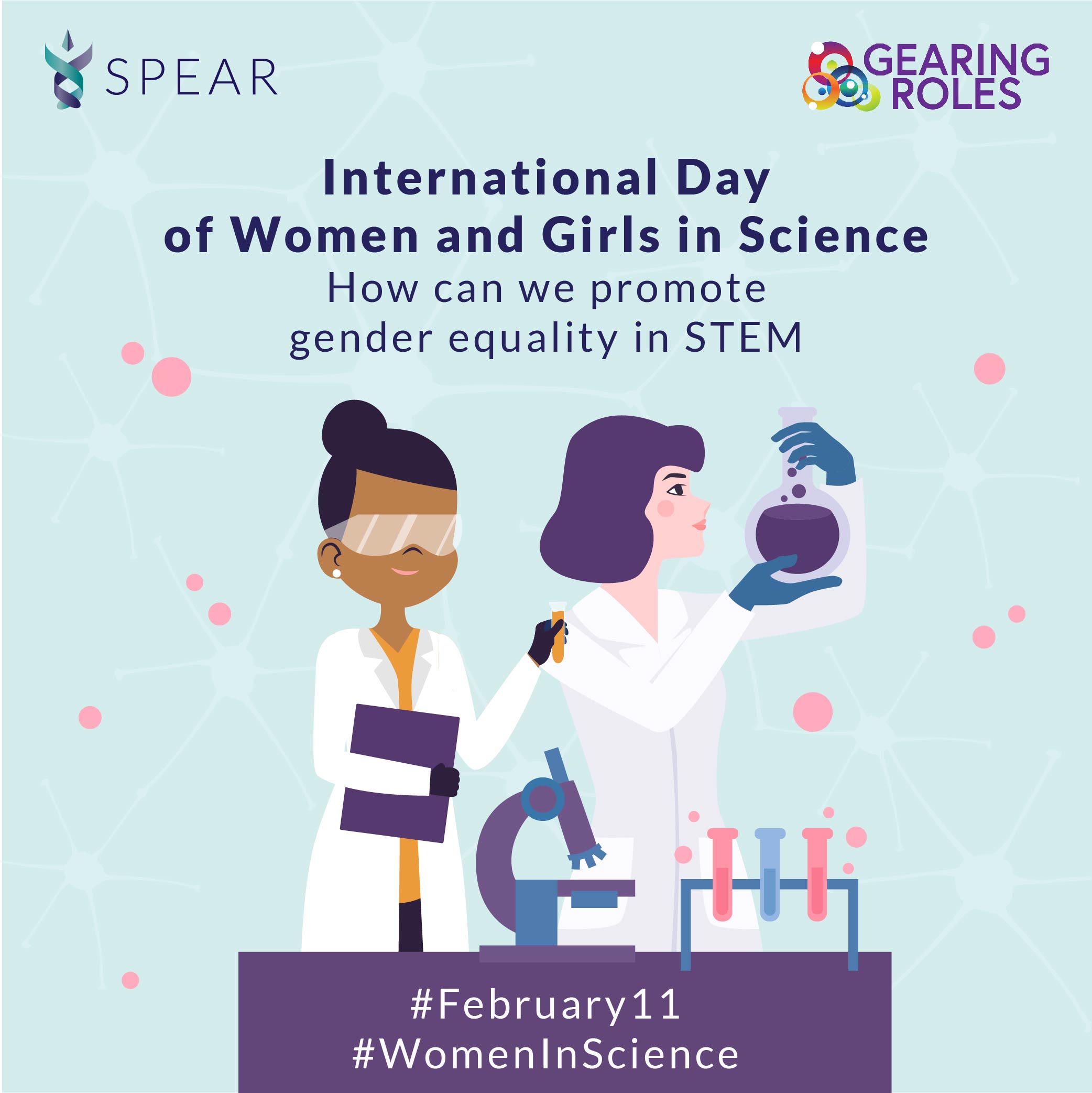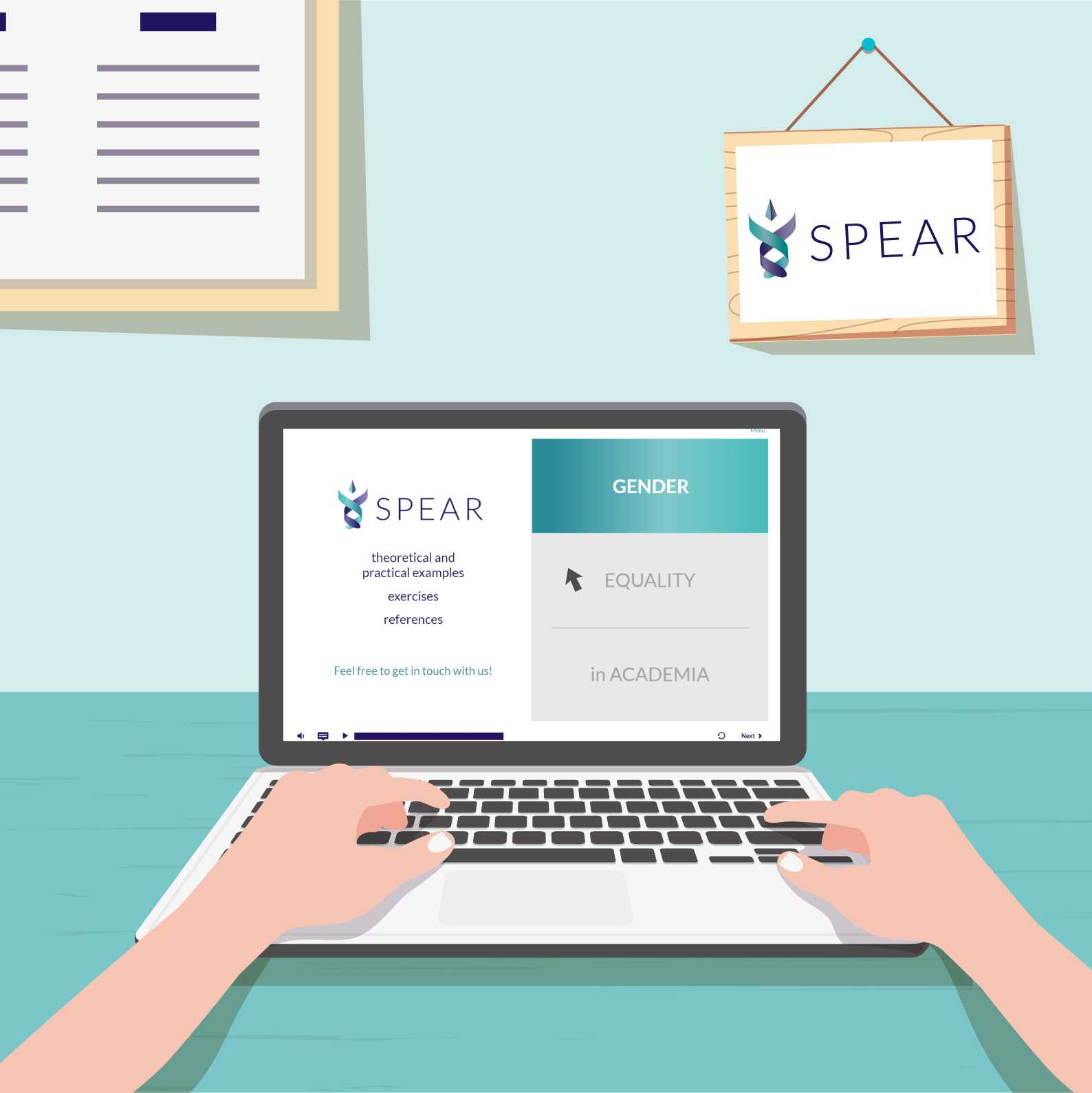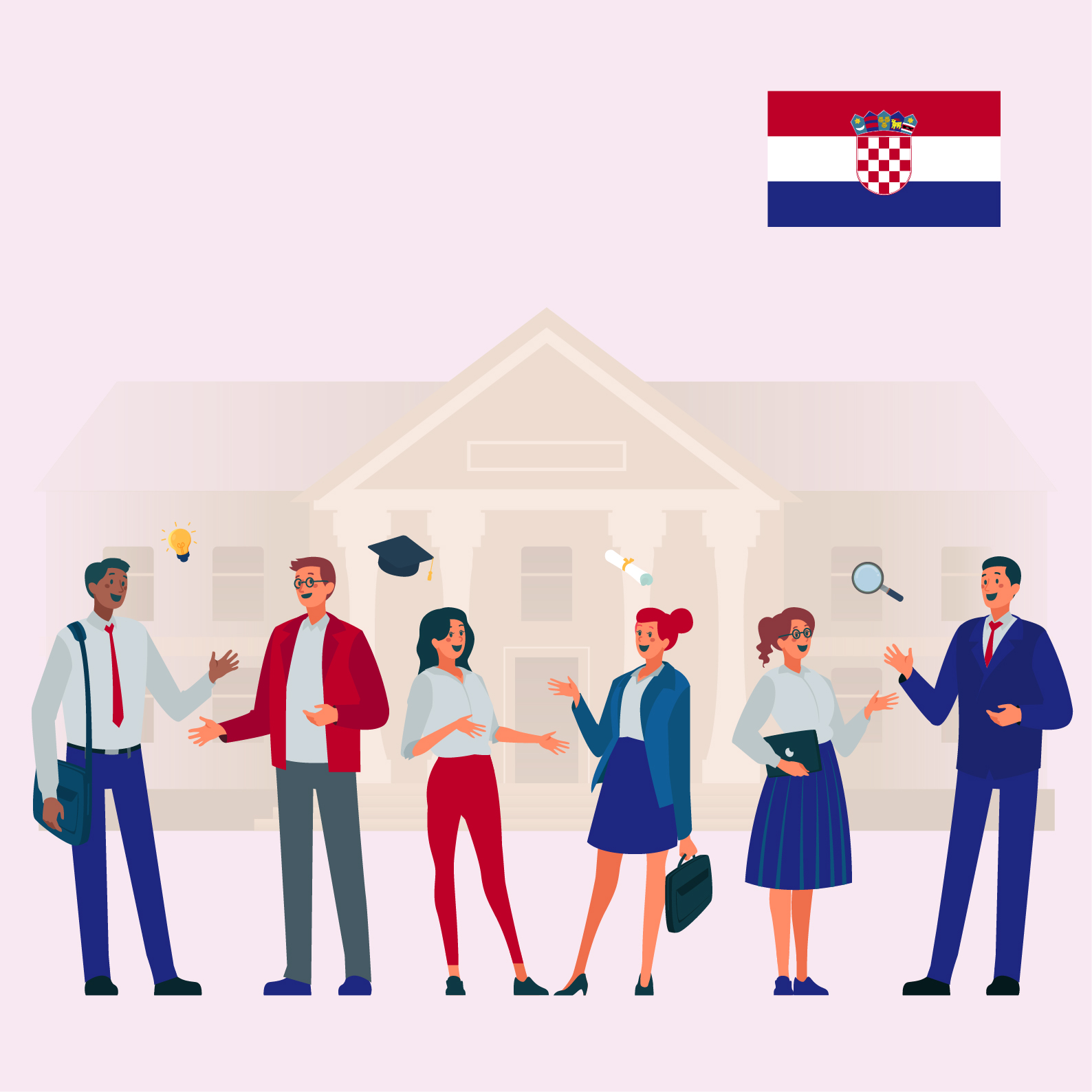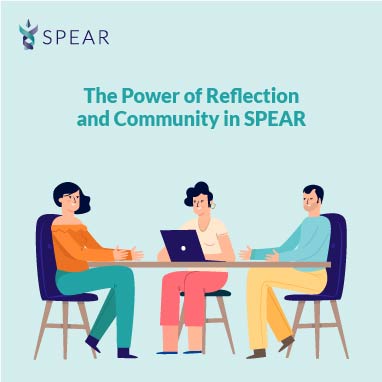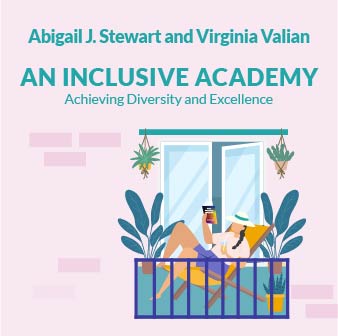Multimedia
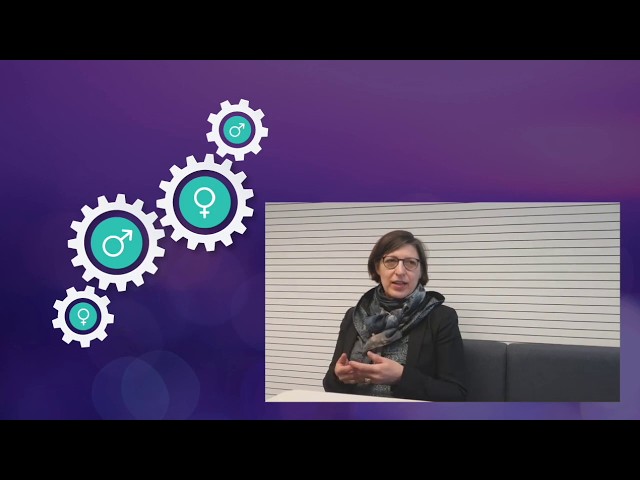
Community of Learning and Community of Practice
Eva Sophia Myers, from the University of Southern Denmark, explains what Community of Learning and Community of Practice mean within the framework of the SPEAR project
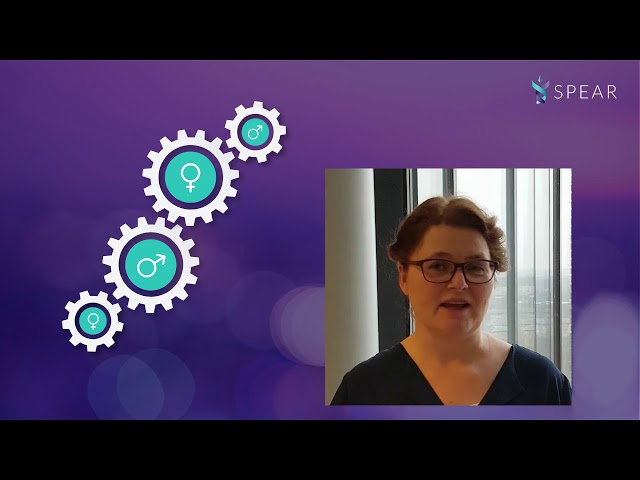
Benefits of Gender Equality Plans for universities and research organisations across Europe
Nina Almgren from Uppsala University explains what benefits can the implementation of Gender Equality Plan bring for universities and research organisations across Europe.
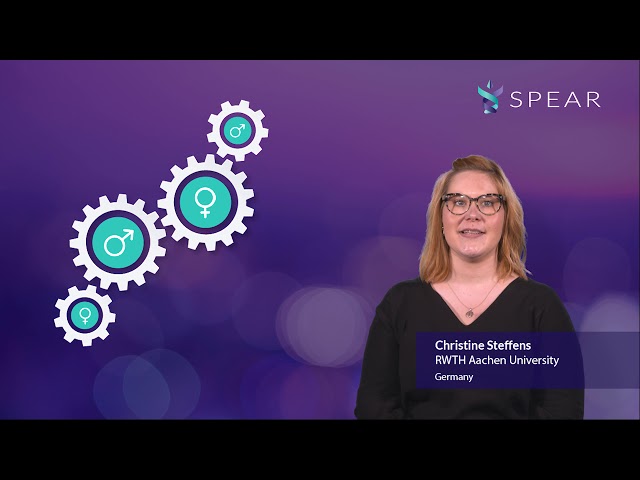
Concrete benefits from GEPs implementation for universities and research organizations
Manuela Aye and Christine Steffens from RWTH Aachen University describe the concrete benefits from the implementation of Gender Equality Plans (GEPs) for universities and research organisations across Europe
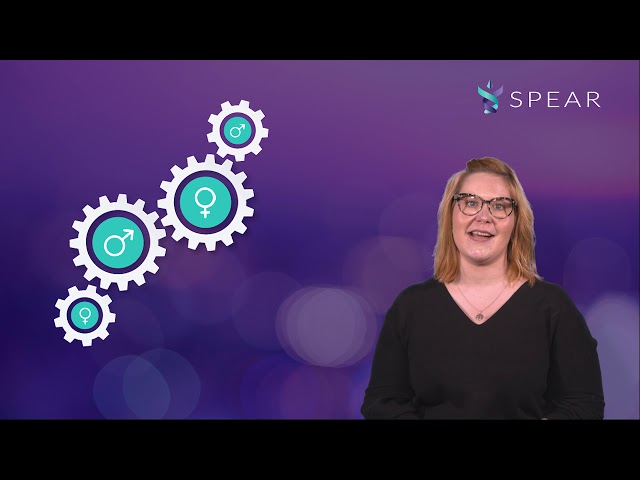
Impact of SPEAR's Communities on GEPs implementation
Christine Steffens from RWTH Aachen University highlights the outcome that the Communities of Learning (CoL) and Communities of Practice (CoP) will have on the implementation process
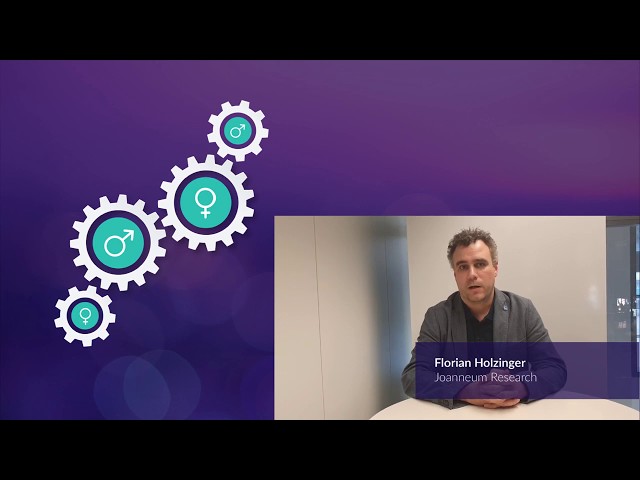
Community of Learning: sessions and exercises to promote gender equality within organisations
Florian Holzinger from Joanneum Research explains the importance of working together in SPEAR’s Community of Learning and features of specific exercises for SPEAR partners. These exercises are aimed to equip them with arguments to promote gender equality among relevant decision-makers within their organisations.
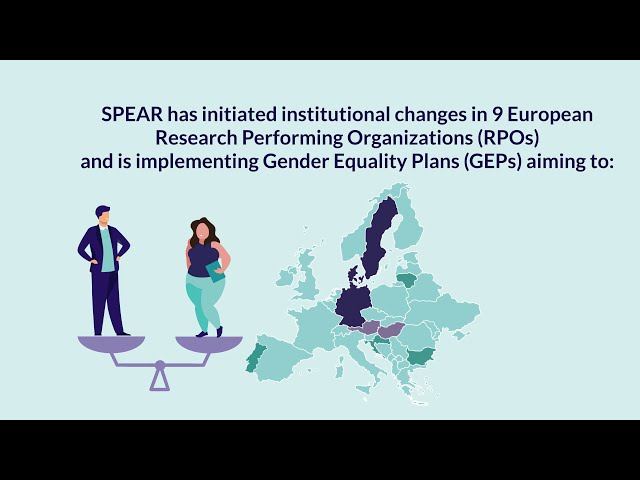
SPEAR promo video
This video aims to present the major challenges of gender equality in academia and research and introduce SPEAR's achievements and future initiatives to reduce gender inequality in the field.
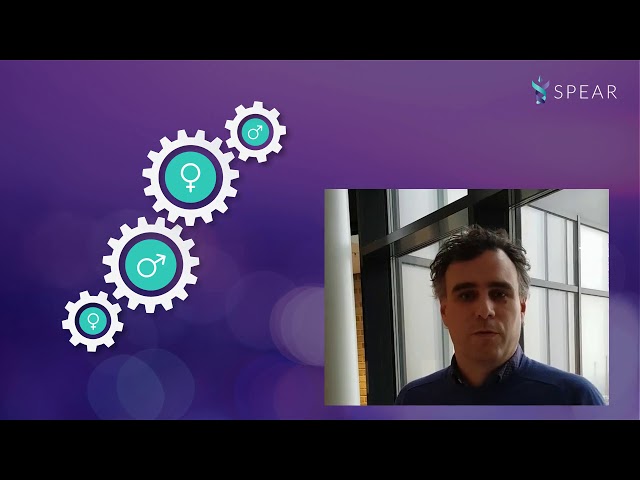
Key outcomes from evaluations in previous projects dealing with Gender Equality
Florian Holzinger from Joanneum Research analyzes the key outcomes from evaluations in previous projects dealing with Gender Equality
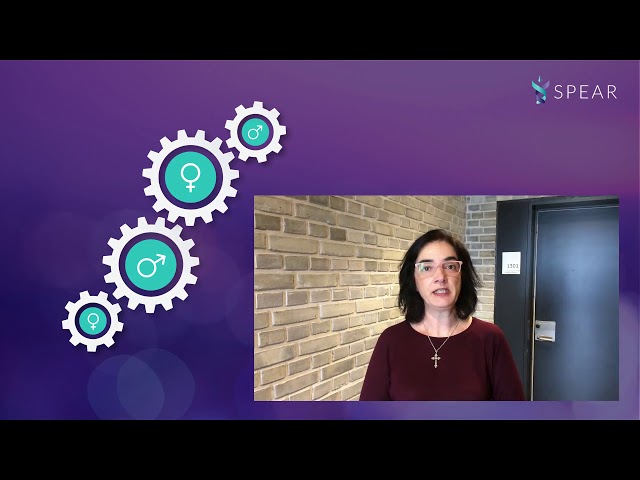
Main takeaways from SPEAR's PLSM1 that could be applicable in Portugal
Elvira Fortunato from University Nova Lisboa presents the main takeaway from the first sessions of SPEAR's Community of Learning (CoL) and Community of Practice (CoP) that could be applicable in Portugal and the university particularly.
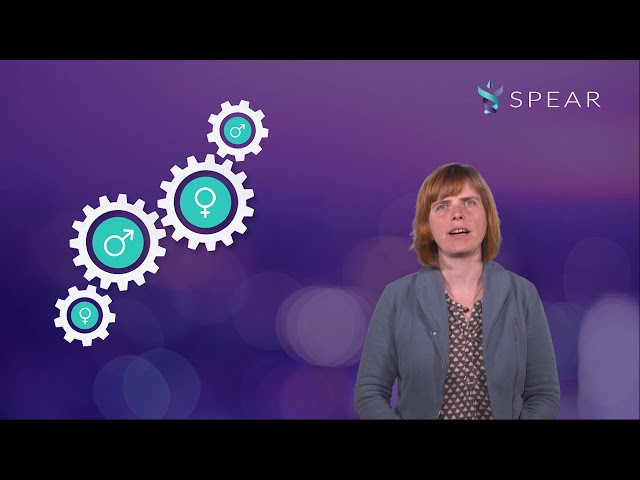
Main goals of SPEAR's Communities
Manuela Aye from RWTH Aachen University explains the main goal of SPEAR's structures, Communities of Learning (CoL) and Communities of Practice (CoP)
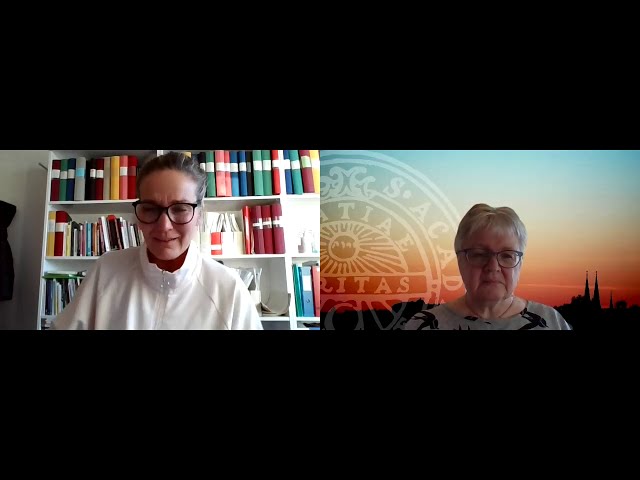
Interview with researcher Stina Powell
On the International Day for the Elimination of Violence against Women, Minna Salminen from Uppsala University had the chance to meet and interview Stina Powell.
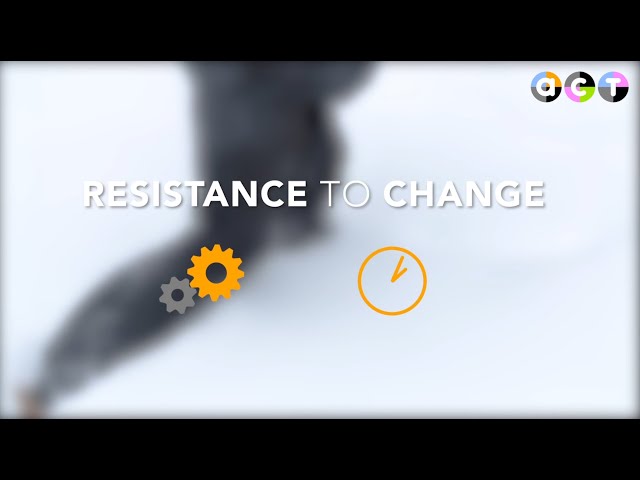
ACT project video on overcoming resistance
SPEAR coordinator, Eva Sophia Myers and Lucy Ferguson from Yellow Window provide their insights on resistance; its origins. theories, forms and what can be done on institutional level to achieve gender equality and reduce resistance.
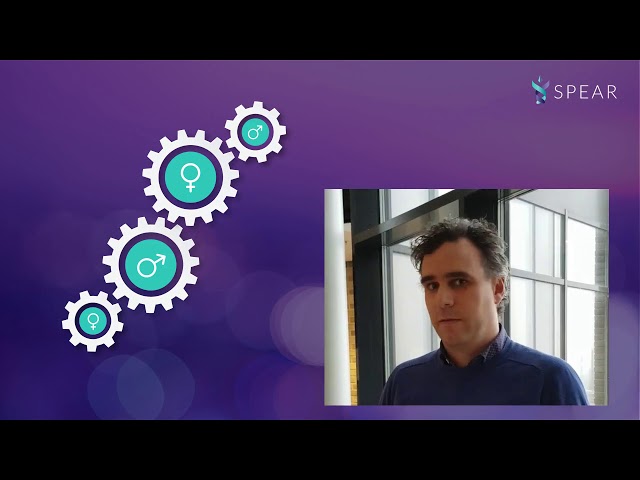
Main expectations from SPEAR project from the evaluator's perspective
Florian Holzinger from Joanneum Research sets the main expectations from SPEAR project from the evaluator's perspective.
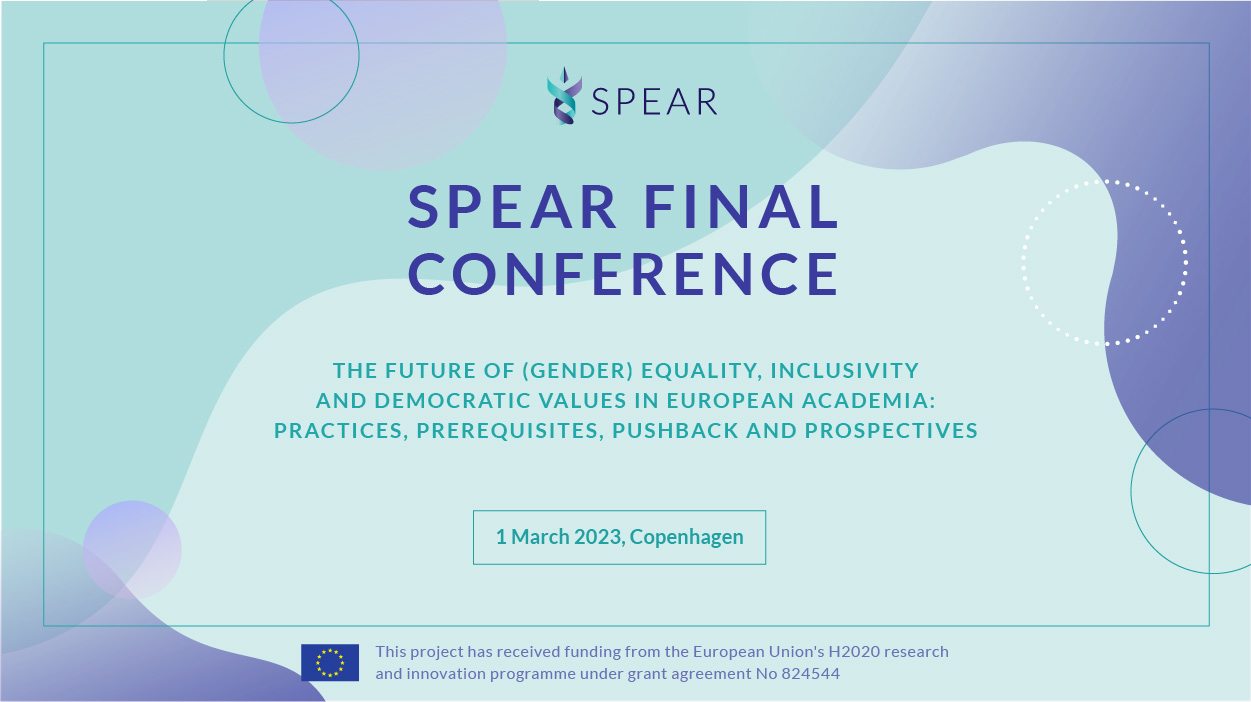
SPEAR Final Conference
The future of (gender) equality, inclusivity and democratic values in European Academia: Practices, prerequisites, pushback and prospective
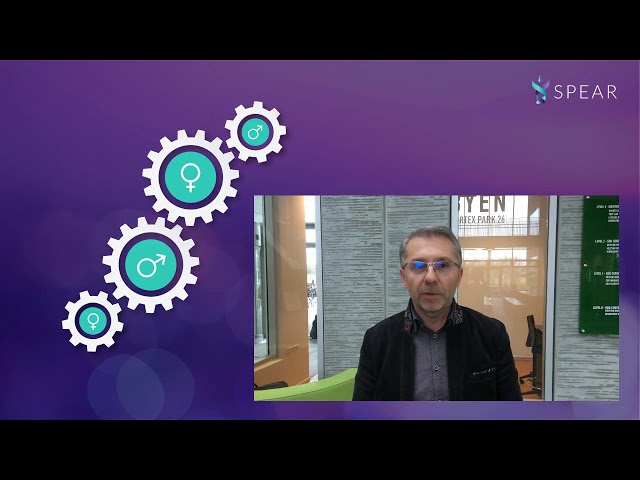
Main takeaways from SPEAR's PLSM1 that could be applicable in Bulgaria
Georgi Apostolov from South-West University "Neofit Rilski" describes what is the main takeaway from the first sessions of Spear's Community of Learning (CoL) and Community of Practice (CoP) that could be applicable in Bulgaria and the institution in particular.

SPEAR's key impacts – inspiration for thinking ahead
SPEAR experts, leaders and advisors share SPEAR’s objectives, methodology, outputs and impacts as examples of practices and prerequisites for inclusive gender equality in European Academia.
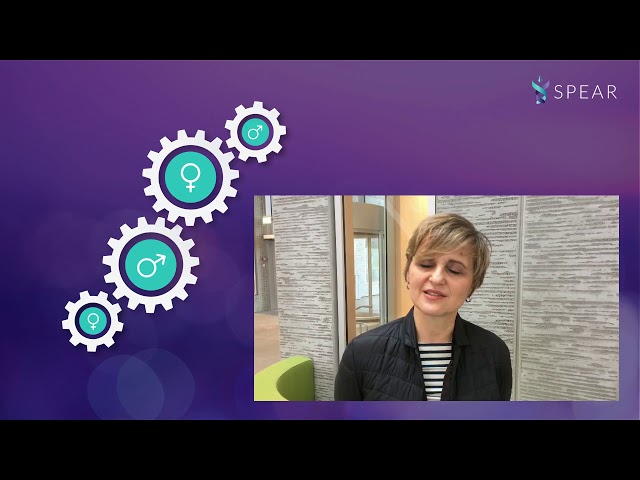
Main takeaways from SPEAR's PLSM1 that could be applicable in Croatia
Snjezana Prijic - Samarzija from University of Rijeka explains what is the main takeaway from the first sessions of SPEAR's Community of Learning (CoL) and Community of Practice (CoP) that could be applicable in Croatia and the institution particularly
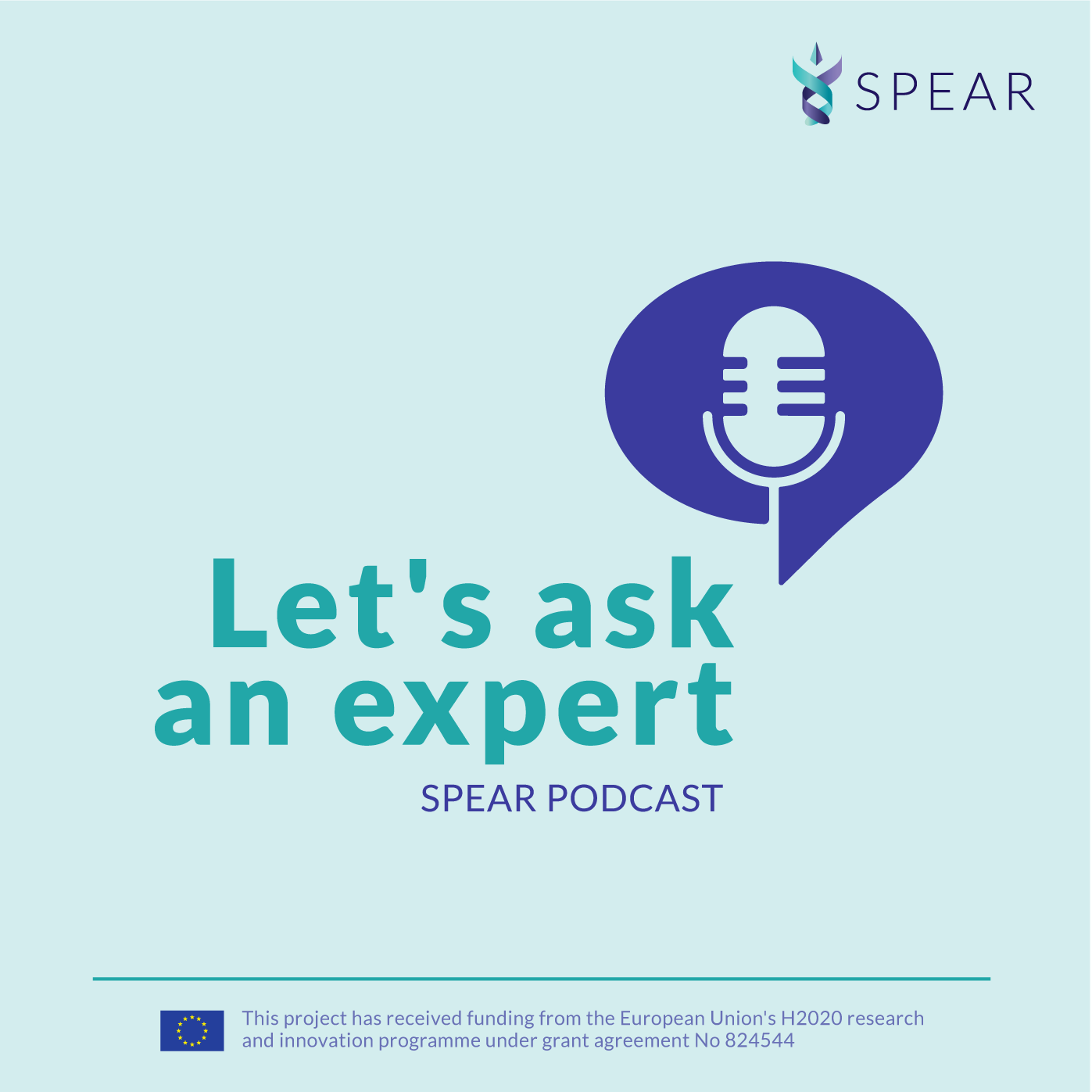
In this podcast episode, Christine Steffens from RWTH Aachen University interviews Tomas Brage, Professor of Physics at Lund University, Sweden, on the Gender dimension in Natural Science Research with Physics and math-intensive disciplines in focus.
Tomas Brage is strongly involved in work on Gender and Science and gives talks on “Gender and Physics” around Europe. He is a steering group member of the LERU Policy Group for EDI and participates in the GENERA network and the GenderEX Horizon 2020 project. He chairs the section for Equality, Diversity and Inclusion of the Swedish Physical Society and is a member of the university advisory boards and expert panels for Equality, Diversity and Inclusion at the National University of Ireland in Galway and the Southern University of Denmark. At Lund University, he has led several equality projects including the Gender Certification project, the Antidiscrimination education, the Unconscious Bias observers and the Core Values project, just to name a few.
We had the pleasure and honour to talk with Tomas about the role of gender in Physics and math-intensive research, the integration of gender in research content, how to attract, recruit and retain diverse research talent and much more. We hope you enjoy the podcast and conversation with Tomas Brage!
Speakers: Tomas Brage and Christine Steffens
|
Table of content |
Timestamp |
|
Intro |
00:00:00 |
|
The role of gender in Physics and math-intensive research |
00:02:25 |
|
Challenges in integrating the gender dimension into physics and math-intensive research |
00:05:08 |
|
Common/ different challenges across Natural Science disciplines |
00:06:36 |
|
Examples of gender-sensitive research and education in Physics and related math-intensive disciplines |
00:09:13 |
|
Setting up (gender) equal research teams: attracting, recruiting and retaining diverse talents to Physics and math-intensive disciplines* |
00:16:05 |
|
Fostering an equal academic, work and study environment: good-practice examples from Lund University* |
00:29:22 |
|
Summary: Way forward to rendering Natural Science Research more equal |
00:38:22 |
|
Outro |
00:47:38 |
*referring to Horizon Europe
Useful links:
GENERA Network for Gender and Physics
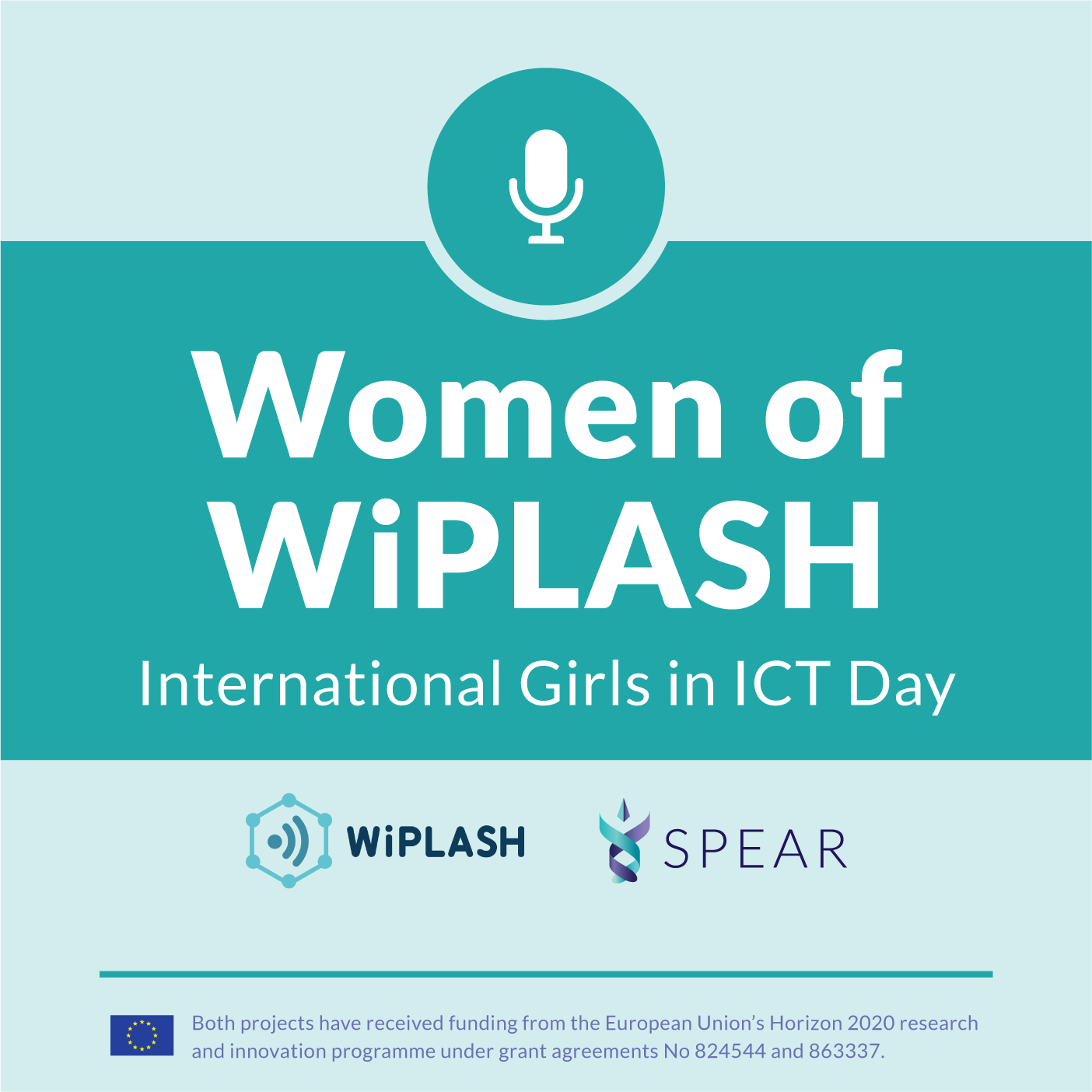
The International Girls in ICT Day, happening every year on the fourth Thursday of April, aims to create a global environment that empowers and encourages young girls and women to consider careers in ICT. The 2022 theme facilitates discussions and possibilities to overcome the access and safety barriers that girls face when they aspire to pursue STEM studies and careers.
On this episode of “Daughters of Marie” we discuss these barriers and challenges with four women in ICT: Irem Boybat, Research Staff Member at IBM Research - Zurich; Elana Pereira de Santana, PhD student at Universität Siegen; Fátima Rodríguez, PhD student at the Polytechnic University of Catalonia (UPC); and Nuria Castell, former Associate Professor at the Polytechnic University of Catalonia (UPC).
Irem, Elana, Fatima and Nuria are all partners of the WiPLASH Horizon 2020 project, which aims to develop an on-chip wireless communication plane to provide architectural plasticity, reconfigurability and adaptation for any application requirements without any loss of generality.
Speakers: Irem Boybat, Elana Pereira de Santana, Fátima Rodríguez, Nuria Castell and Jelena Lazic.
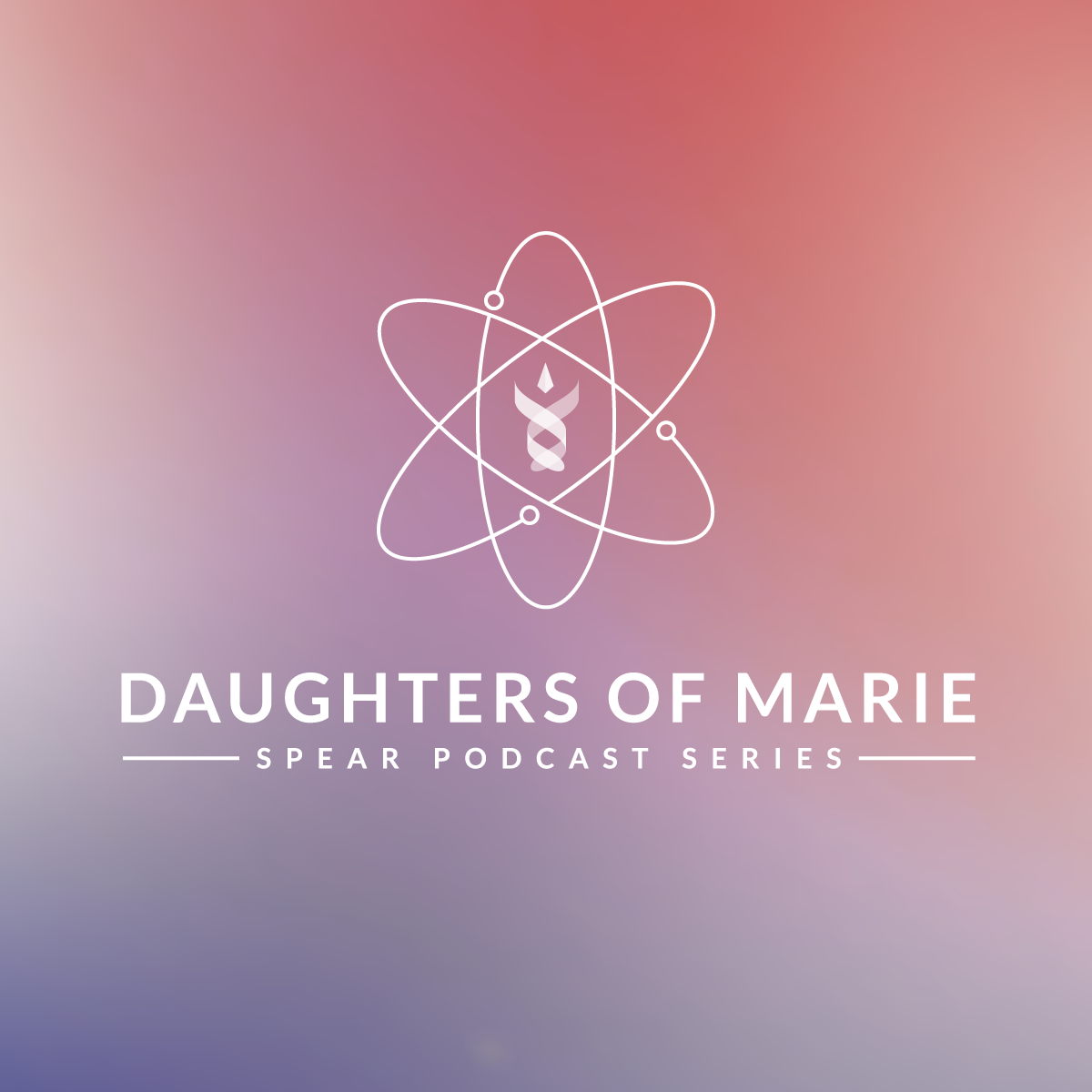
The 11th of February marks the United Nations International Day of Women and Girls in Science. On this day, we remember and honour the achievements of women, both known and unknown, who have paved the way for those of us in science today and promote full and equal access to and participation in science and technology for women and girls.
On this episode of “Daughters of Marie” we introduce you to Ieva Plikusienė, top-class researcher, Associate Professor at Vilnius University, and winner of the renowned L'ORÉAL Baltic Award for Women in Science. Her research has made a significant contribution to the development of measures to combat the COVID-19 pandemic and her work and dedication are enormous sources of inspiration to young girls who dream about a career in STEM. Ieva is a contemporary superheroine and the archetype of the SPEAR women in science we like and admire.
Speakers: Ieva Plikusienė and Jelena Lazic

We decided to talk about women, about extraordinary women. Pioneers, scientists, scholars, feminists, daughters, mothers: our contemporary role models. Women who shaped our history, went against the tide, personified new roles, and broke the rules because multiplying categories where women can play a role is the only way to dismantle stereotypes and achieve equality. Daughters of Marie is the celebration of all these women who, like Marie Sklodowska Curie, the women in science par excellence, excelled in disciplines historically dominated by men.
The daughter of Marie of this episode is Claudine Hermann, the first woman ever appointed Professor at Ecole Polytechnique, President of the European Platform of Women Scientists EPWS, co-founder and the first president of the association Femmes & Sciences. Claudine is the very first inspiring woman in science of the Daughters of Marie podcast.
Speakers: Claudine Hermann and Jelena Lazic.
The podcast was written and produced by Jelena Lazic in collaboration with Claudine Hermann.
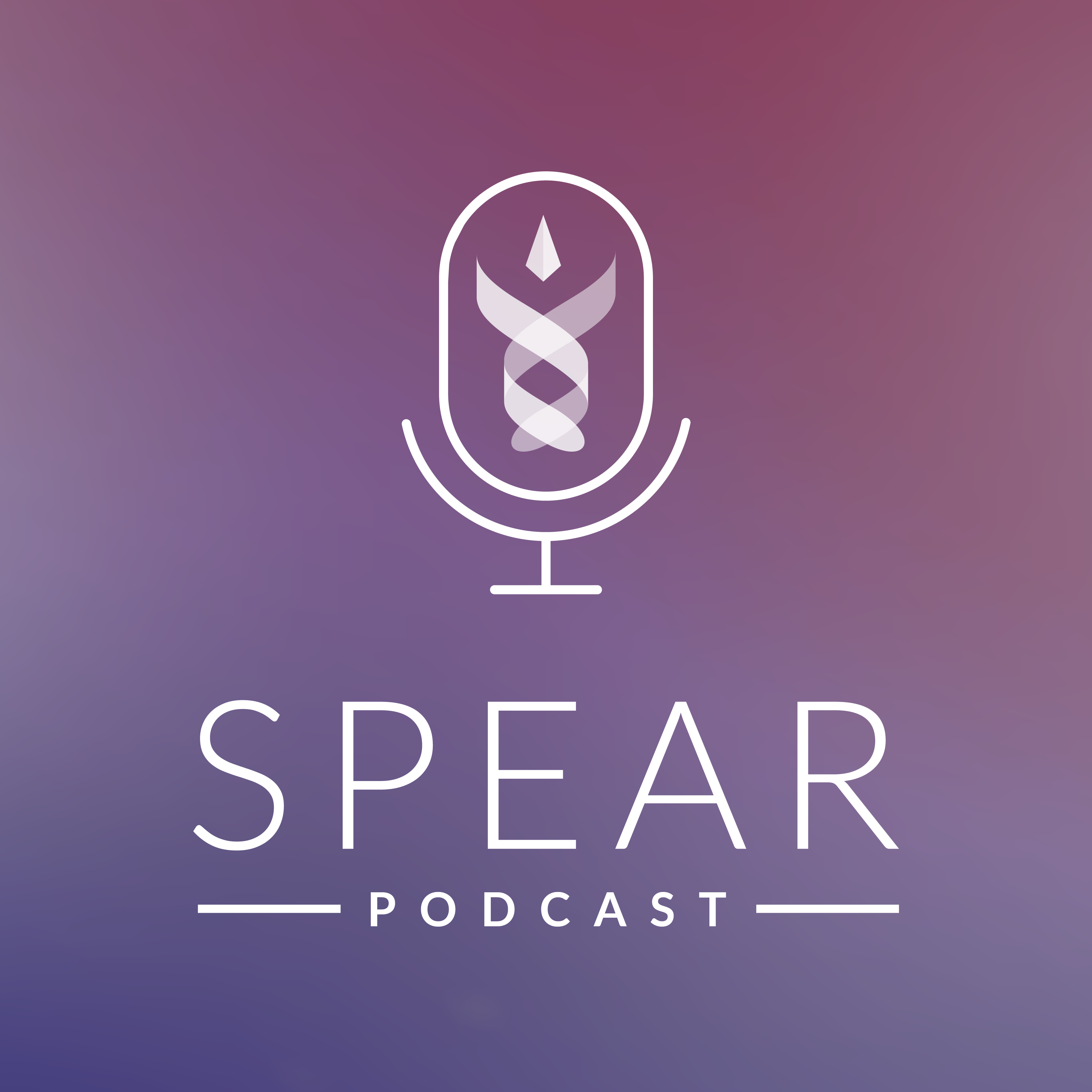
According to the UN, „data monitoring is an ongoing process by which stakeholders obtain regular feedback on the progress being made toward achieving their goals and objectives“. It is a continuous endeavour, requiring constant data collection and feedback. The main purpose is to enable the learning process and informed reflection, which is the very heart of SPEAR’s CoL and CoP sessions.
Data is empirical evidence suggesting clearly where and how an institution needs to change the approach to accomplish the goals. Also, any deviation might be highlighted through data monitoring, with the possibility to adopt novel measures along the process. This methodology proved to be useful for the monitoring and subsequent evaluation of Gender Equality Plans’ implementation and degree of success in RPOs.
Florian Holzinger, from Johanneum Research, will walk you through the main steps of data monitoring applied to the gender equality sphere, interviewed by Christine Steffens from RWTH Aachen University.
The following publications and tools are mentioned during the podcast:
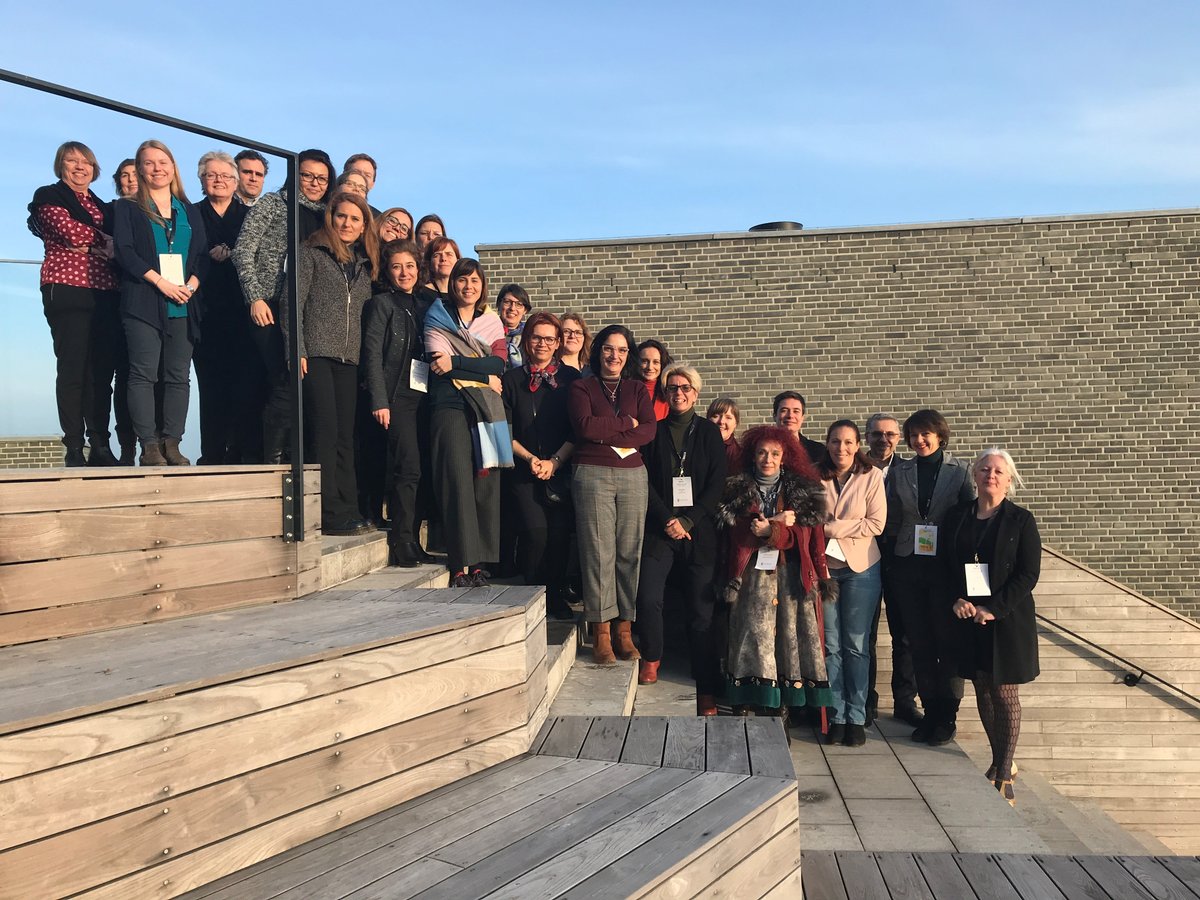
SPEAR'S kick-off meeting in Odense
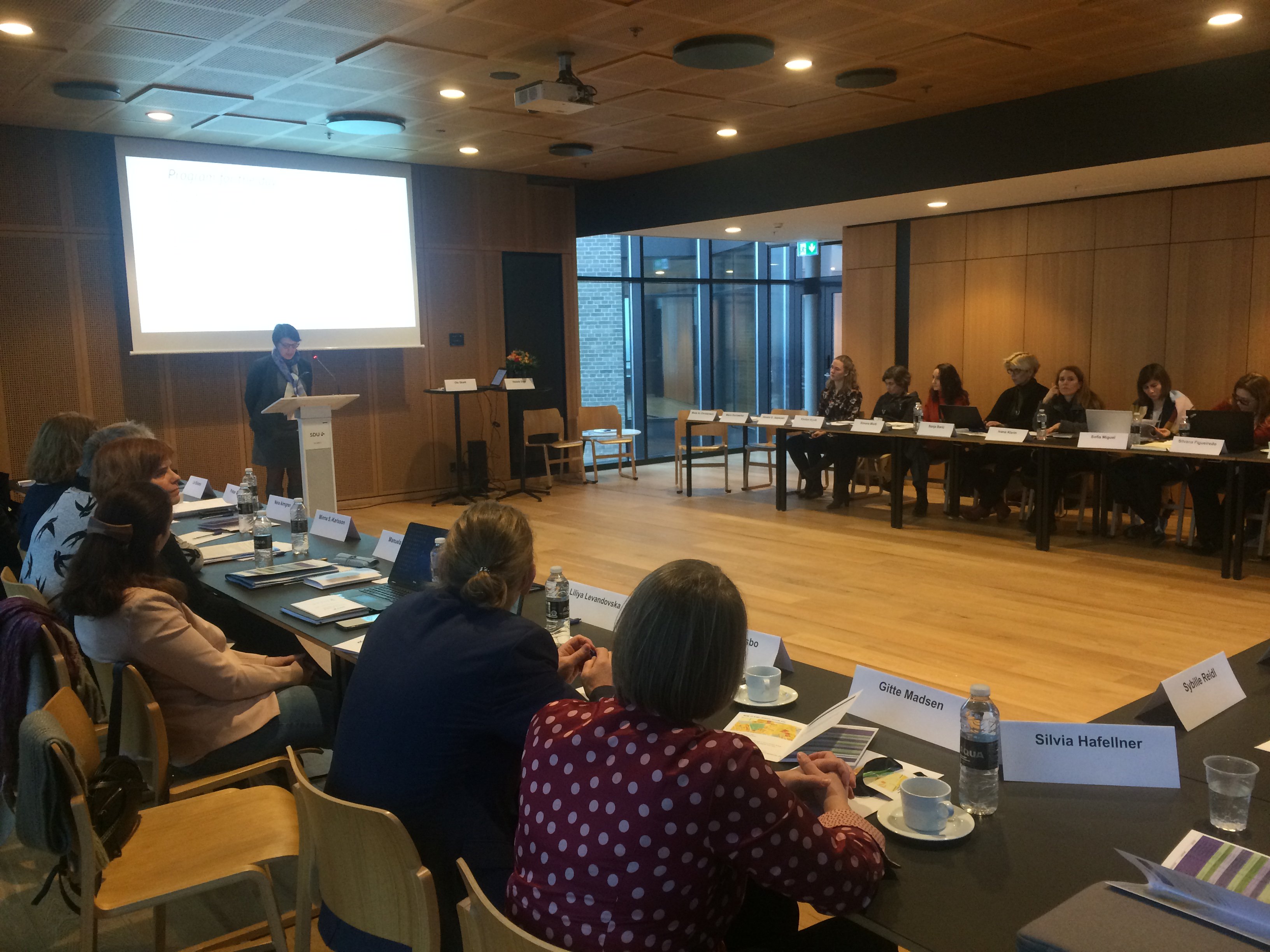
Welcome speech from the project coordinator during the kick-off meeting
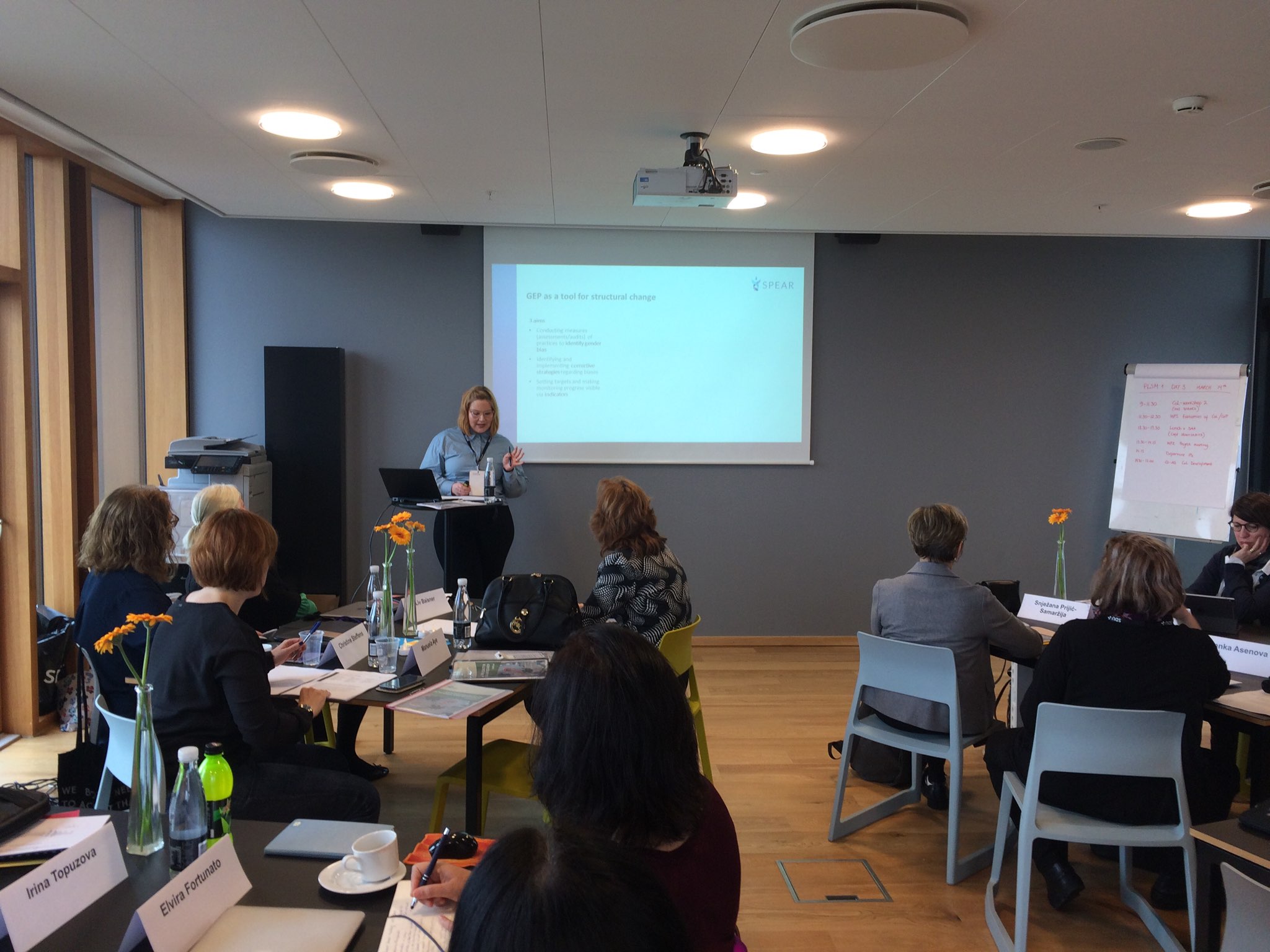
Community of Learning session in Odense
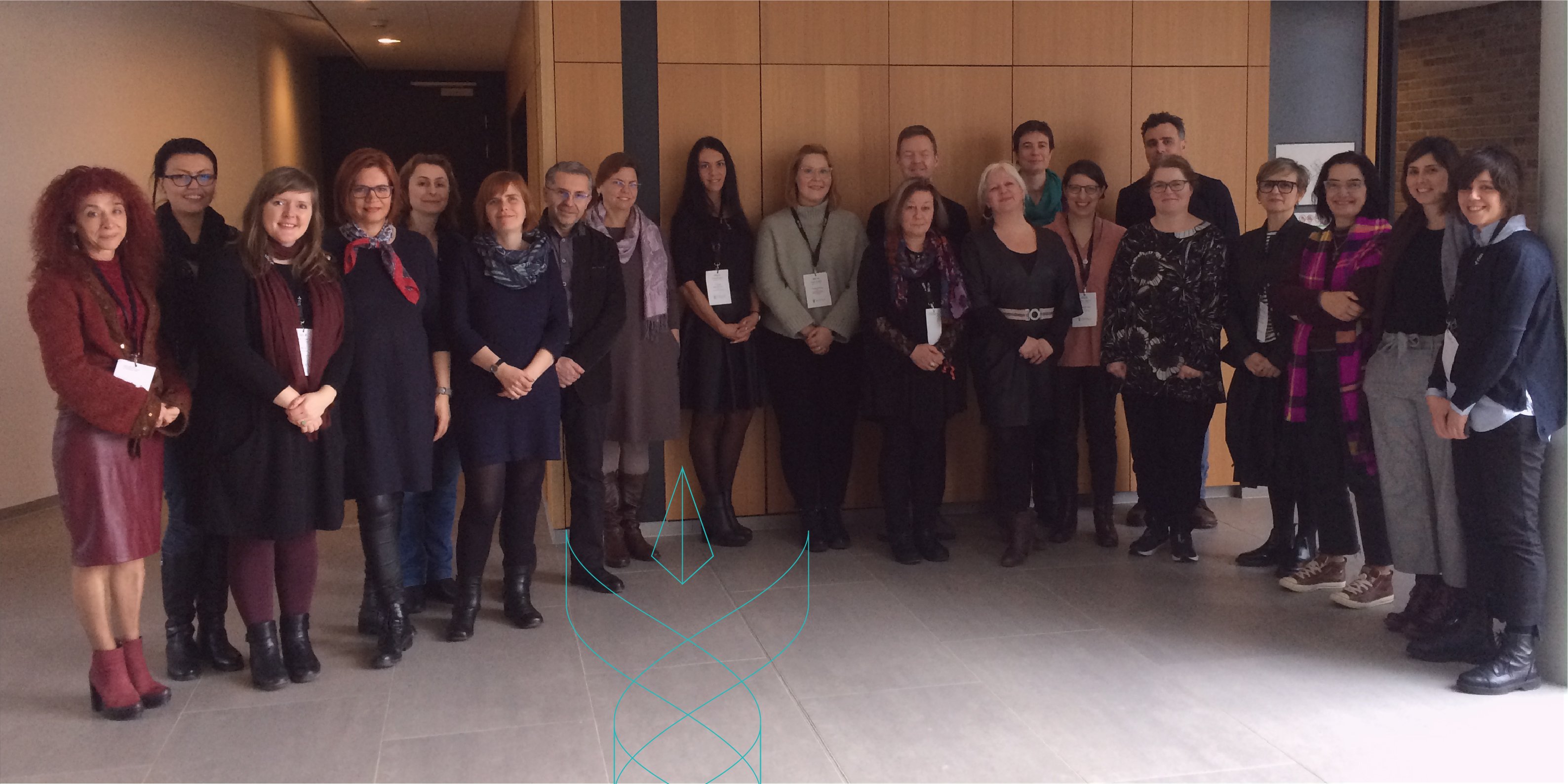
Group photo in the first PLSM in Denmark
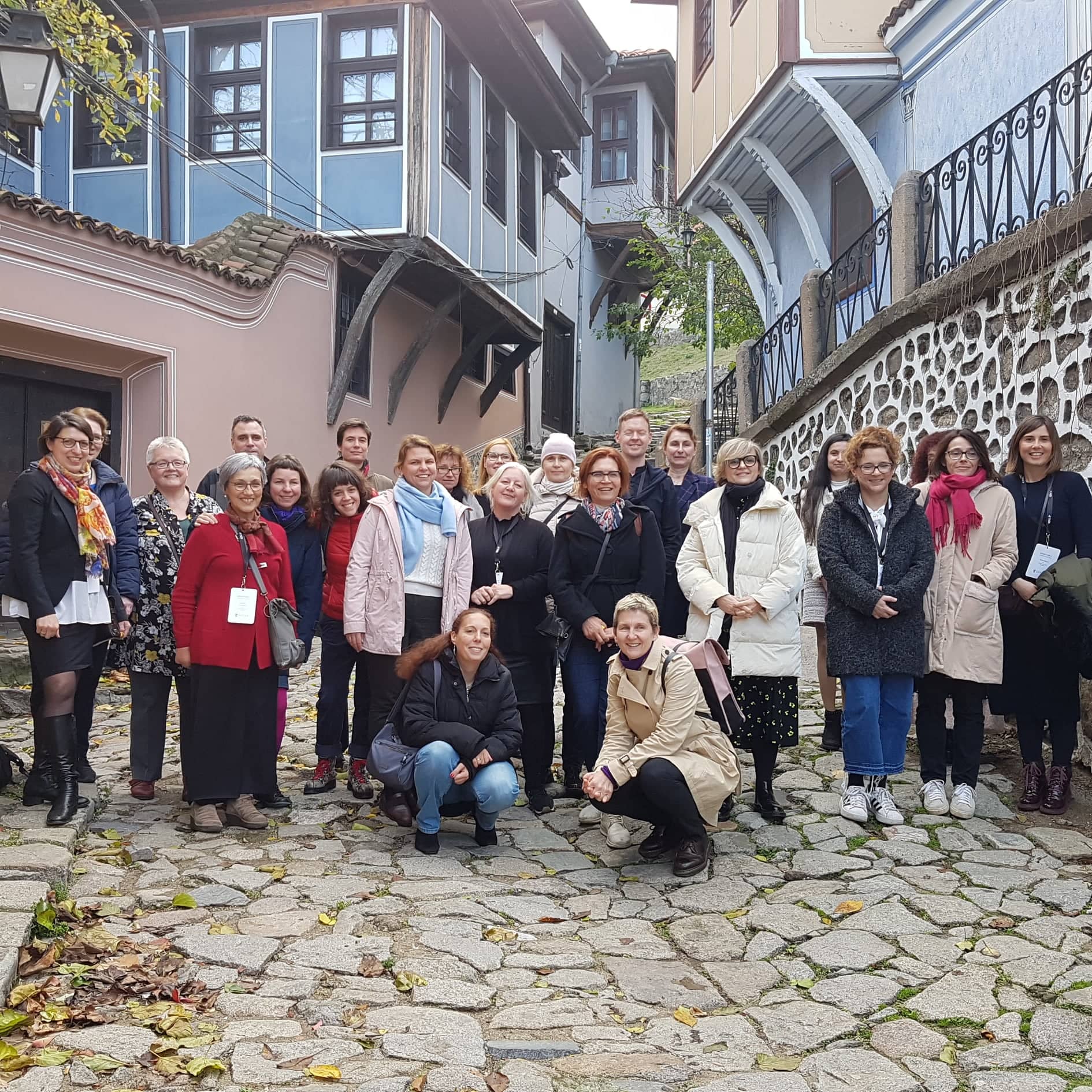
Second PLSM in Plovdiv
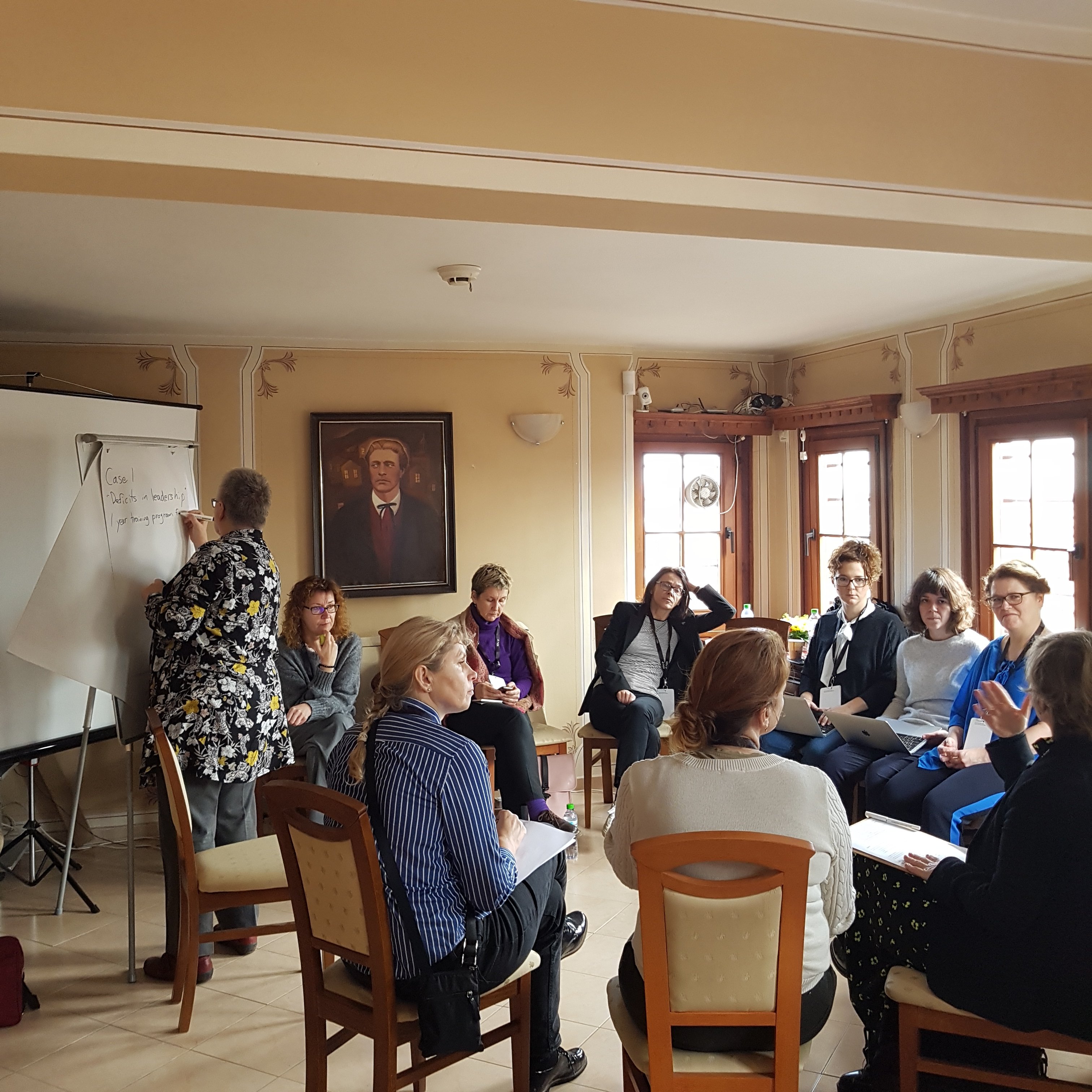
Group work sessions during the 2nd PLSM
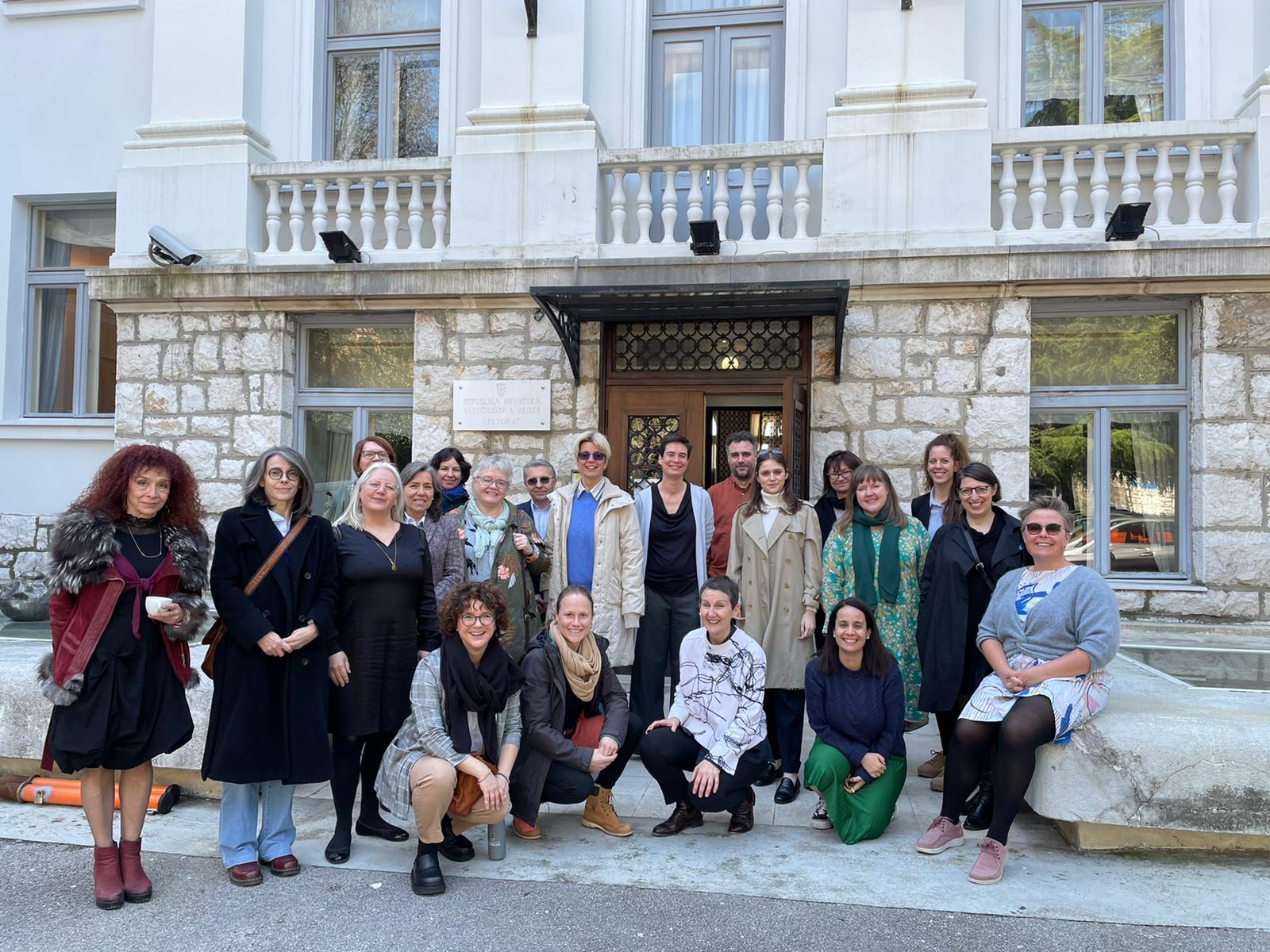
Group photo at the fifth PLSM in Rijeka
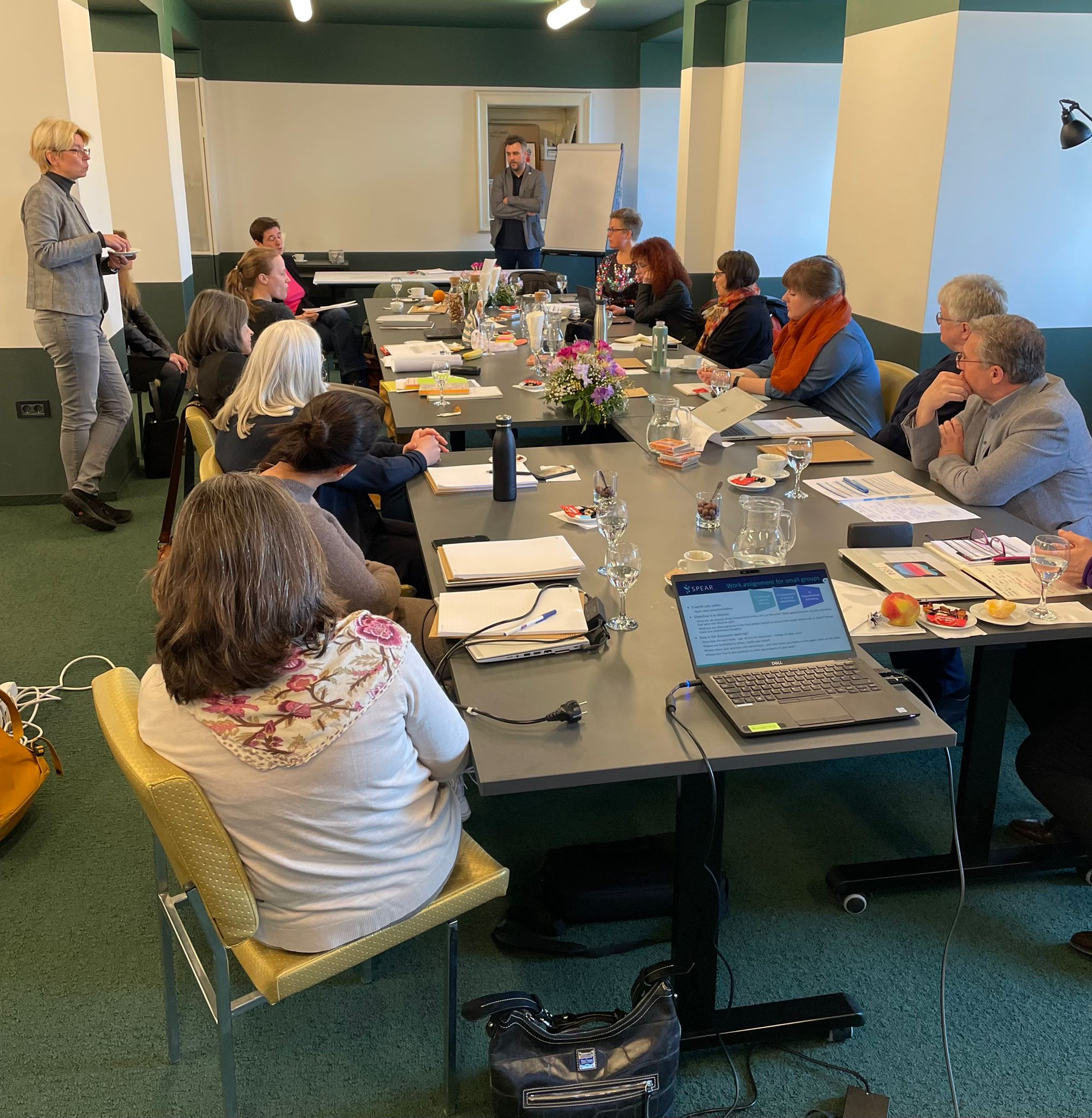
Group work session during PLSM 5
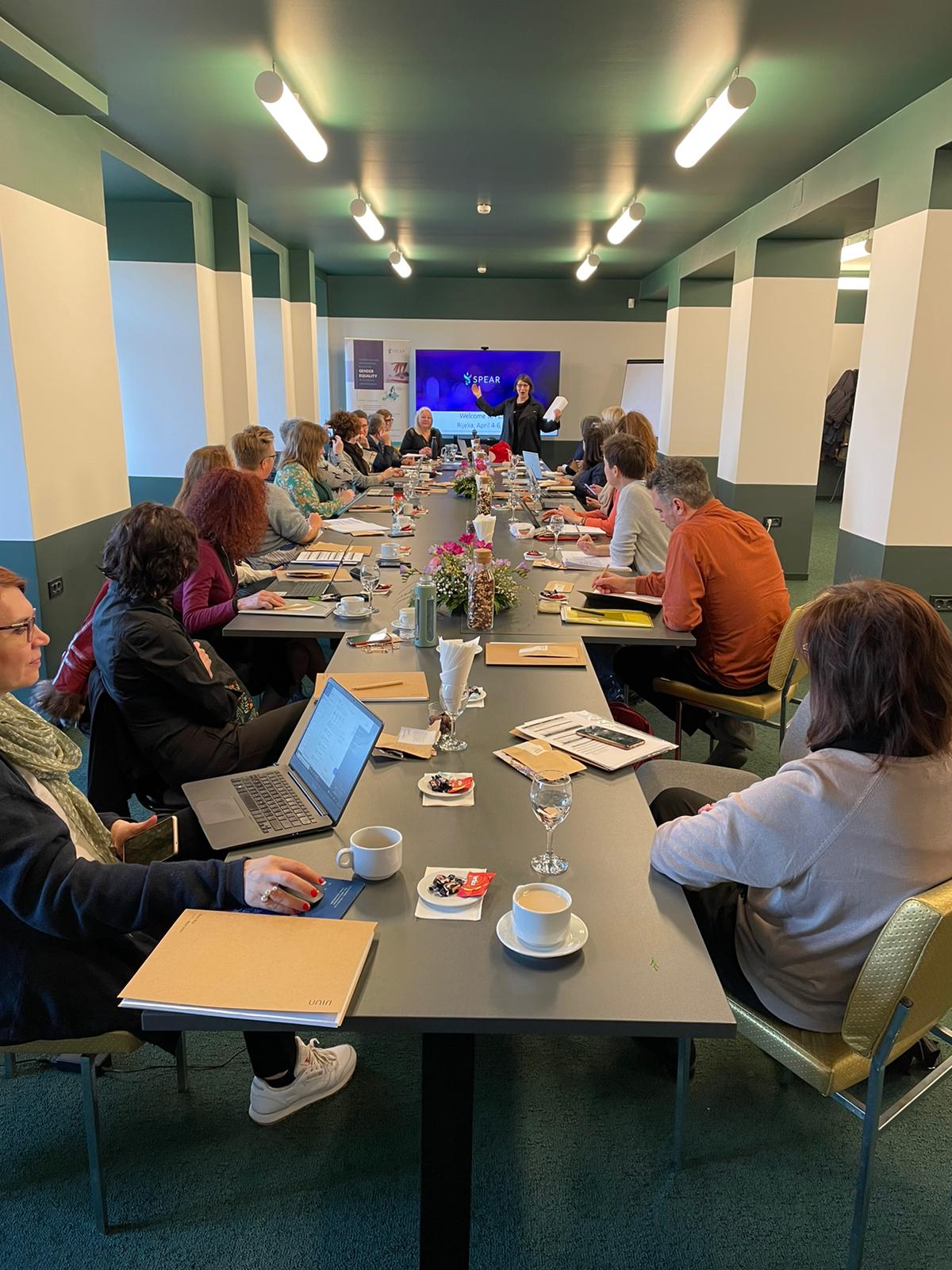
Group work session during PLSM 5
